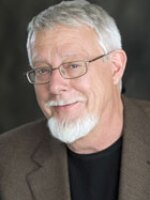STEVE INSKEEP, host:
It's MORNING EDITION from NPR News. Good morning. I'm Steve Inskeep.
There have been other investigations into the death of Pat Tillman, but a Congressional probe is pushing in a different direction. Democrats are asking what top officials knew when a friendly fire death was falsely described. It was the death of a former football star who went to Afghanistan, and it's one of two high-profile incidents that lawmakers are examining.
NPR's John McChesney reports.
JOHN McCHESNEY: Army Specialist Brian O'Neil was on the same hillside with Pat Tillman when he was killed in Afghanistan in 2004, and it was O'Neil who provided some of the hearing's most dramatic revelations. He said he accompanied Pat Tillman's brother Kevin when he was sent home after Pat's death. But he was ordered by the battalion commander not to tell Kevin how Pat was killed.
Specialist BRIAN O'NEIL (U.S. Army): He made it known that I would get in trouble, sir, if I spoke with Kevin on it being fratricide, sir.
McCHESNEY: O'Neil said he was quite appalled by the order because he wanted to tell the family right away. The Army painted Tillman's heroism in glowing terms in his posthumous Silver Star award, saying that while mortally wounded, his audacious leadership and courageous example under fire inspired his men to fight. The Army said Tillman put himself in the line of deadly enemy fire.
A testimonial attached to the award and attributed to Brian O'Neil said something similar. Democratic Congressman Bruce Braley questioned O'Neil.
Representative BRUCE BRALEY (Democratic, Iowa): Did you write these sentences, claiming that you were engaged with the enemy?
Spec. O'NEIL: No, sir.
Rep. BRALEY: Do you know who made the changes to your statement to make it appear as if you were receiving fire from the enemy rather than from your own platoon?
Spec. O'NEIL: No, sir.
McCHESNEY: The Defense Department's inspector general didn't know who made those changes either. Thomas Gimble told the committee that investigators couldn't trace the authorship of the fraudulent document. When asked if carried out computer forensics in the trace effort, he said no. Pat Tillman's brother, Kevin, made his first public appearance at the hearing and also voiced his contempt for the inspector general's report.
Army Ranger KEVIN TILLMAN (U.S. Army): The most recent investigation by the Department of Defense concluded that the killing of Pat was, quote, "an accident." The handling of the situation after the firefight was described as a compilation of, quote, "missteps, inaccuracies, and errors in judgment which created the perception of concealment."
McCHESNEY: Even though the most recent investigation did fault previous probes for a variety of reasons, it found no criminal wrongdoing. Kevin Tillman says one of his sharpest disagreements with the report is that it found no fault with the shooters.
Army Ranger TILLMAN: The soldier who shot Pat admitted in his sworn statement that just before he delivered the fatal burst from about 35 meters away that he saw his target waving hands, but he decided to pull the trigger anyway. Such an act is not an accident; it's a clear violation of the rules of engagement.
McCHESNEY: The Tillman family believes that Pat's shooters should be charged with negligent homicide. Kevin Tillman also believes a troubled U.S. government was trying to change the subject with the story of his brother's death.
Army Ranger TILLMAN: This freshly manufacture narrative was then distributed to the American public, and we believe the strategy had the intended effect. It shifted the focus from the grotesque torture at Abu Ghraib and a downward spiral of an illegal act of aggression to a great American who died a hero's death.
McCHESNEY: Mary Tillman, Pat's mother, says throughout this ordeal the government has repeatedly asked what they can do for her.
Ms. MARY TILLMAN (Mother): How we can we appease you? And it makes me sick. It's not about our family. Our family will never be satisfied. We'll never have Pat back. But what is so outrageous is this isn't about Pat, this is about what they did to Pat and what they did to a nation.
McCHESNEY: Specialist Jessica Lynch became famous as a sort of female Rambo in media stories, saying she was shot, put up furious resistance, was captured and then rescued during the early days of the war. But that narrative unraveled. She was not shot, couldn't fight back, and was rescued long after Iraqi soldiers had left the hospital where she'd been taken.
Specialist JESSICA LYNCH (U.S. Army, Retired): The bottom line is the American people were capable of determining their own ideals for heroes and they don't need to be told of elaborate lies.
McCHESNEY: In hearing testimony, it emerged that Lynch's rescue was delayed for a full day while the Army prepared to videotape the event. At the end of the day, the committee was left with this question posed by ranking Republican member Tom Davis of Virginia.
Representative TOM DAVIS (Republican, Virginia): If he first casualty of war is the truth, what happens when the wound is self-inflicted?
McCHESNEY: John McChesney, NPR News, Washington. Transcript provided by NPR, Copyright NPR.






